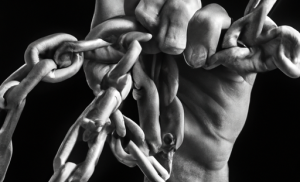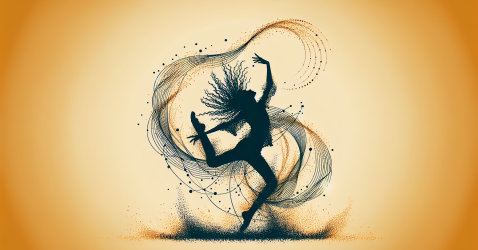Mental Health Resilience For Chronic Pain Warriors
Living with chronic pain can be an uphill battle, affecting not only your physical well-being but also taking a toll on your mental health. In this article, we will explore the importance of mental health resilience for individuals facing the challenges of chronic pain. We will discuss strategies and techniques that can help you build resilience, maintain a positive mindset, and find strength in the face of adversity. Whether you are a chronic pain warrior or know someone who is, this article aims to provide valuable insights and support on the journey towards better mental well-being.
Understanding Chronic Pain
Defining Chronic Pain
Chronic pain refers to persistent pain that lasts for a prolonged period of time, typically for at least three to six months or longer. Unlike acute pain, which is temporary and serves as a warning sign of injury or illness, chronic pain persists beyond the normal healing time and can occur even without any apparent physical injury or cause. It often affects various parts of the body, such as the muscles, joints, nerves, or even internal organs. Chronic pain can vary in intensity, and individuals who experience it may describe it as sharp, dull, burning, or throbbing. It can significantly impact a person’s quality of life and overall well-being.
Prevalence of Chronic Pain
Chronic pain is a widespread issue that affects millions of people worldwide. According to the Institute of Medicine, approximately 100 million Americans suffer from chronic pain, making it a prevalent and significant public health concern. It can affect individuals of all ages, genders, and backgrounds, and its impact extends beyond physical discomfort. The persistent nature of chronic pain can lead to various psychological and emotional challenges, highlighting the need for a holistic approach to its management.
Types of Chronic Pain
Chronic pain can arise from various conditions and causes, and understanding its different forms can contribute to effective management strategies. Some common types of chronic pain include musculoskeletal pain (e.g., back pain, arthritis), neuropathic pain (e.g., nerve damage or dysfunction), and chronic headaches. Other conditions that can cause chronic pain include fibromyalgia, endometriosis, and inflammatory bowel diseases. Each type of chronic pain requires tailored approaches for treatment and coping, emphasizing the importance of individualized care.
Psychological Impact of Chronic Pain
Living with chronic pain can have profound psychological effects on individuals. The constant presence of pain can contribute to feelings of frustration, helplessness, and hopelessness. It may lead to emotional distress, such as anxiety and depression, as well as impair concentration, memory, and overall cognitive function. The continuous battle with pain can disrupt sleep patterns, decrease energy levels, and diminish one’s overall quality of life. As a result, it is crucial to address the psychological impact of chronic pain alongside its physical manifestations.
The Intersection of Mental Health and Chronic Pain
Psychological Factors Contributing to Chronic Pain
While chronic pain often has a physical origin, psychological factors can also play a significant role in its development and persistence. Stress, trauma, and past experiences can influence the way the brain processes and perceives pain signals. For example, stress and anxiety can amplify pain perception, making the pain feel more intense and overwhelming. Additionally, negative emotions and thoughts, such as fear, catastrophizing, and rumination, can further exacerbate the experience of chronic pain. Understanding the interplay between psychological factors and chronic pain can inform comprehensive treatment approaches.
Impact of Chronic Pain on Mental Health
Chronic pain can take a toll on a person’s mental health, leading to the development or worsening of mental health conditions. The constant presence of pain can contribute to feelings of sadness, frustration, and irritability, which may evolve into symptoms of depression or anxiety. Sleep disturbances and fatigue resulting from chronic pain can further disrupt mood regulation, exacerbating emotional distress. Coping with chronic pain often requires individuals to navigate a complex interplay between physical and mental well-being, reinforcing the need for integrated care.
Comorbidity of Mental Health Conditions with Chronic Pain
There is a high prevalence of comorbidity between mental health conditions and chronic pain. Research has consistently shown strong associations between chronic pain and anxiety disorders, depressive disorders, and post-traumatic stress disorder (PTSD). The presence of these mental health conditions can worsen the experience of chronic pain, as well as complicate its management. The bidirectional relationship between chronic pain and mental health underscores the importance of a holistic treatment approach that addresses both aspects.
Building Resilience: Strategies for Mental Health
Self-Awareness and Acceptance
Developing self-awareness regarding the emotional impact of chronic pain can foster resilience in managing its challenges. Acknowledging and accepting the presence of negative emotions can prevent them from becoming overwhelming or consuming. By embracing the reality of chronic pain and its impact on mental health, individuals can begin to explore strategies for coping and self-care more effectively.
Developing Coping Mechanisms
Finding and developing effective coping mechanisms is essential for individuals with chronic pain to navigate its challenges. This may involve identifying healthy distractions, engaging in activities that bring joy and fulfillment, or employing relaxation techniques. Coping mechanisms can vary greatly among individuals, so it is crucial to explore and tailor strategies to personal preferences and needs. Seeking guidance from healthcare professionals or attending support groups can offer valuable insights into coping techniques.
Seeking Support from Loved Ones
building a strong support system is crucial in managing chronic pain and its impact on mental health. Loved ones can provide empathy, understanding, and validation, which play vital roles in emotional well-being. Sharing thoughts, concerns, and experiences with trusted individuals allows for a sense of connection and reduces feelings of isolation. Open communication with loved ones can also foster collaborative problem-solving and the development of strategies to alleviate the challenges posed by chronic pain.
Therapeutic Techniques
Engaging in therapeutic techniques, such as cognitive-behavioral therapy (CBT), can significantly contribute to mental health resilience for individuals with chronic pain. CBT focuses on the relationship between thoughts, emotions, and behaviors, aiming to modify maladaptive patterns and promote healthier coping strategies. Through therapy, individuals can learn to challenge negative thoughts, develop problem-solving skills, and cultivate resilience in the face of chronic pain challenges.
Mindfulness and Meditation
Practicing mindfulness and meditation can be powerful tools in managing chronic pain and enhancing mental well-being. Mindfulness involves intentionally paying attention to the present moment without judgment, allowing individuals to develop an accepting and non-reactive stance toward pain sensations. Meditation practices, such as focused breathing or body scans, can induce a state of relaxation and reduce anxiety or stress associated with chronic pain. Incorporating mindfulness and meditation into daily routines can promote self-awareness and increase resilience in the face of challenges.
Importance of Self-Care
Physical Self-Care
Taking care of one’s physical health is crucial for individuals with chronic pain. Engaging in regular physical activity appropriate for one’s condition, such as gentle exercises or stretching, can help manage pain and maintain physical functionality. Prioritizing rest and sleep, following a balanced diet, and attending regular medical appointments are also essential aspects of physical self-care. By addressing physical needs, individuals can support their overall well-being and optimize their ability to manage chronic pain.
Emotional Self-Care
Nurturing emotional well-being is equally important in the journey of managing chronic pain. Engaging in activities that promote relaxation, such as reading, listening to music, or engaging in creative hobbies, can provide emotional respite and rejuvenation. Practicing stress management techniques, such as deep breathing exercises or journaling, can help individuals process and express emotions related to chronic pain. Prioritizing self-compassion and self-expression in the face of challenges contributes to emotional resilience.
Maintaining a Healthy Lifestyle
Adopting a healthy lifestyle can significantly impact both physical and mental well-being for individuals with chronic pain. This includes maintaining a balanced diet, staying adequately hydrated, limiting alcohol and caffeine consumption, and avoiding tobacco products. Engaging in regular exercise, as advised by healthcare professionals, can promote physical stamina, improve mood, and reduce pain sensitivity. Additionally, establishing a consistent sleep routine and practicing good sleep hygiene can enhance overall well-being and resilience in managing chronic pain.
Setting Realistic Expectations
Setting realistic expectations is vital in managing chronic pain and maintaining mental health resilience. Accepting that limitations may exist and that self-care is a continuous process can prevent unnecessary frustration or disappointment. Recognizing that some days may be more challenging than others and allowing oneself the flexibility to adapt and take breaks can foster resilience. Embracing a balanced approach that acknowledges achievements, however small, contributes to maintaining a positive outlook and motivation in the face of adversity.
Effect of Positive Thinking
Practicing Gratitude
Practicing gratitude can have a transformative effect on a person’s mental well-being, particularly in the context of chronic pain. Despite the challenges imposed by pain, finding moments of gratitude for the things that bring joy, comfort, and support can foster a positive mindset. Keeping a gratitude journal or engaging in daily reflections on the positive aspects of life can shift focus away from pain and cultivate a sense of appreciation and resilience.
Cultivating Optimism
Cultivating optimism involves adopting a positive outlook and actively seeking positive aspects in the face of adversity. It involves acknowledging that while chronic pain may present challenges, there are still opportunities for growth, learning, and moments of joy. Surrounding oneself with positive influences, such as uplifting media or supportive social connections, can reinforce an optimistic mindset. By nurturing optimism, individuals can build resilience and maintain hope in their journey with chronic pain.
Shifting Perspectives
Chronic pain can often lead to a narrowed focus on pain and its limitations. Shifting perspectives involves consciously broadening one’s view to encompass other aspects of life beyond pain. This can include focusing on personal strengths, interests, and meaningful relationships. Engaging in activities that bring fulfillment and purpose can expand perspectives, reminding individuals that they are more than just their pain. By consciously shifting perspectives, individuals can develop a more balanced and resilient mindset.
Utilizing Affirmations
Affirmations are positive statements that individuals can use to challenge negative self-talk and promote self-belief and resilience. Creating personal affirmations tailored to specific areas of struggle related to chronic pain can help reframe counterproductive thoughts. Affirmations can be repeated daily, establishing new neural pathways and fostering a more positive and empowering inner dialogue. By utilizing affirmations, individuals can transform negative thinking patterns and cultivate mental health resilience.
The Role of Professional Help
Consulting a Healthcare Provider
Seeking guidance from a healthcare provider is essential in managing chronic pain and its impact on mental health. Healthcare professionals can provide accurate diagnoses, explore underlying causes, and develop comprehensive treatment plans. They can also assess and address any coexisting mental health conditions that may contribute to or result from chronic pain. Regular consultations with a healthcare provider allow for ongoing evaluation and adjustments to treatment approaches, ensuring individuals receive the support they need.
Psychological Therapy Options
Psychological therapy, such as cognitive-behavioral therapy (CBT), can be highly beneficial in managing chronic pain and its psychological impact. By addressing the thoughts, emotions, and behaviors associated with chronic pain, therapy can help individuals develop healthier coping mechanisms, challenge negative beliefs, and foster resilience. Other therapy options, such as acceptance and commitment therapy (ACT) or mindfulness-based stress reduction (MBSR), may also be recommended based on individual needs. Psychological therapy provides a safe and supportive environment for individuals to explore and navigate their mental health challenges.
Medication Management
Medication management plays a crucial role in addressing chronic pain and its impact on mental health. Healthcare professionals may prescribe pain medications, such as nonsteroidal anti-inflammatory drugs (NSAIDs) or opioids, to manage pain symptoms. Additionally, medications targeting specific mental health conditions, such as antidepressants or anxiolytics, may be prescribed if indicated. Medical supervision and regular evaluations ensure the appropriate use of medications, considering both their potential benefits and risks.
Complementary and Alternative Medicine
Complementary and alternative medicine (CAM) approaches can offer additional options for managing chronic pain and supporting mental well-being. Practices such as acupuncture, massage therapy, or herbal supplements are commonly used complementary therapies. Other approaches, like yoga, tai chi, or biofeedback, focus on enhancing body-mind connections and promoting relaxation. While the effectiveness of CAM approaches can vary, individuals may find them helpful as part of a holistic treatment plan. It is important to consult with healthcare professionals to ensure safe and evidence-based use of these approaches.
Support Groups and Peer Networks
Benefits of Support Groups
Joining support groups can provide invaluable support and encouragement for individuals with chronic pain. Support groups offer a space to share experiences, exchange coping strategies, and provide emotional validation. Connecting with others who understand the challenges of living with chronic pain can help combat feelings of isolation and foster a sense of belonging. Support groups also offer opportunities for learning and accessing information about available resources or treatment options. By actively participating in support groups, individuals can build a strong network of peers who can offer understanding and support.
Finding Online Communities
Online communities provide an accessible platform for individuals with chronic pain to connect and support one another. Social media groups, forums, and online communities dedicated to chronic pain allow individuals to share experiences, ask questions, and gain insights from others in similar situations. Engaging in online communities can alleviate feelings of isolation, provide emotional support, and offer a wealth of knowledge and resources. It is important, however, to exercise caution when navigating online communities, ensuring personal information is kept private and relying on reputable sources.
Sharing Experiences
Sharing experiences with others who understand the challenges of chronic pain can have a profound impact on mental health resilience. Communicating openly about the struggles, triumphs, and coping strategies associated with chronic pain can foster a sense of empathy and connection. By sharing experiences, individuals can exchange insights, validate one another’s emotions, and offer support. The power of solidarity in navigating the complexities of chronic pain is an invaluable resource that contributes to mental well-being.
Building a Strong Support System
In addition to support groups and online communities, building a strong support system of loved ones is crucial for individuals with chronic pain. Friends and family members who provide understanding, patience, and support play a pivotal role in emotional well-being. Regular communication, open dialogue, and clear expression of needs allow loved ones to offer assistance and create a supportive environment. By actively cultivating a strong support system, individuals can feel empowered and resilient in managing their chronic pain journey.
Financial and Practical Considerations
Managing Medical Expenses
Chronic pain management often involves considerable medical expenses, including consultations, diagnostic tests, and treatments. It is essential to establish strategies to manage these costs effectively. Exploring insurance coverage options, negotiating medical bills, or applying for financial assistance programs can help alleviate the financial burden. Understanding and keeping track of medical expenses, as well as seeking professional advice from financial advisors or patient advocates, can provide valuable guidance in navigating the financial aspects of chronic pain management.
Navigating the Insurance System
Understanding insurance policies and navigating the bureaucracy of the healthcare system can be challenging for individuals with chronic pain. It is important to familiarize yourself with the coverage provided by your insurance plan, including any limitations or restrictions related to chronic pain management. Having a clear understanding of the claims process, the documentation required, and the steps for obtaining pre-approvals can streamline the insurance navigation process. If needed, seeking assistance from patient advocates or insurance specialists can provide guidance in dealing with insurance-related challenges.
Accessing Disability Support
For individuals whose chronic pain significantly impacts their ability to work or engage in daily activities, accessing disability support can be an essential consideration. Understanding the eligibility criteria, the application process, and the required documentation for disability benefits is crucial. It may be helpful to consult with healthcare professionals, disability advocates, or legal experts who specialize in disability support to navigate this process effectively. Accessing disability benefits can provide financial assistance and support individuals in managing their chronic pain and mental health needs.
Adapting Work and Daily Activities
Adapting work and daily activities to accommodate chronic pain is an important aspect of managing its impact. For individuals in employment, exploring flexible work options, including part-time work, job sharing, or telecommuting, can provide a more accommodating environment. Collaborating with employers to identify workplace modifications or ergonomic adjustments may also be beneficial. Moreover, pacing activities, prioritizing self-care, and seeking assistance in daily tasks can help individuals optimize their energy levels and manage their chronic pain effectively.
Overcoming Stigma and Advocating for Yourself
Addressing Misconceptions
Chronic pain often faces stigma due to its invisible nature and the misconception that individuals may exaggerate their symptoms. Challenging these misconceptions involves educating others about the realities of chronic pain and its impact on mental health. Sharing personal experiences, providing reliable information, and dispelling myths can promote understanding and empathy. By addressing misconceptions, individuals can contribute to a more supportive and inclusive society for those living with chronic pain.
Educating Others
Raising awareness and educating others about chronic pain and its psychological impact is crucial in overcoming stigma. Engaging in conversations, participating in awareness campaigns, or sharing educational resources can help dispel misunderstandings and promote empathy. By educating others, individuals with chronic pain contribute to a more informed society that supports and respects the experiences of those living with pain. A well-informed community can serve as a crucial support network for individuals with chronic pain and enhance mental health resilience.
Developing Effective Communication Skills
Effective communication skills are essential for individuals with chronic pain to express their needs, advocate for themselves, and seek appropriate support. Articulating pain experiences, emotional challenges, and treatment preferences in a clear and assertive manner can ensure that healthcare providers, loved ones, and employers understand individual needs. Building effective communication skills involves active listening, empathy, and the ability to ask for help when needed. By mastering communication techniques, individuals can strengthen their sense of agency, advocate for themselves, and effectively navigate their chronic pain journey.
Empowering Yourself through Advocacy
Individuals with chronic pain can empower themselves and contribute to positive change by engaging in advocacy efforts. Joining advocacy groups, participating in fundraising events, or sharing personal stories through various media platforms can raise awareness and promote policy changes. By advocating for increased access to quality healthcare, improved pain management options, and mental health support, individuals can play an active role in shaping a more supportive and inclusive society. Empowering oneself through advocacy fosters resilience and encourages others to speak up and seek the support they need.
Celebrating Small Victories
Recognizing Personal Achievements
Acknowledging personal achievements, no matter how small they may seem, is an essential aspect of mental health resilience for individuals with chronic pain. Each step towards coping, managing pain effectively, or seeking support deserves recognition and celebration. Whether it is completing a daily exercise routine, attending a social event, or accomplishing a personal goal, taking the time to appreciate personal achievements helps foster motivation, self-confidence, and resilience.
Focusing on Progress
Chronic pain journeys often involve ups and downs, making it important to focus on progress rather than perfection. Instead of fixating on the challenges or setbacks experienced, individuals can direct their attention to the achievements and progress they have made. Recognizing improvements in pain management techniques, resilience in the face of adversity, or growth in coping strategies encourages individuals to stay motivated and maintain a positive outlook.
Maintaining a Positive Outlook
Maintaining a positive outlook is crucial for mental health resilience in the face of chronic pain. Despite the challenges and pain experienced, cultivating a positive mindset can contribute to overall well-being and enhance the ability to cope adaptively. Incorporating positivity-enhancing practices, such as practicing gratitude, engaging in pleasant activities, or surrounding oneself with positive influences, can nurture a positive outlook. By focusing on the positives, individuals can build resilience and approach their chronic pain journey with optimism and determination.
Rewarding Yourself
Rewarding oneself for personal achievements and milestones is an essential aspect of self-care and mental health resilience. Celebrating progress and moments of success, regardless of their magnitude, helps reinforce motivation and self-confidence. Rewards can take various forms, such as engaging in enjoyable activities, treating oneself to something special, or simply allowing time for relaxation and rejuvenation. By acknowledging accomplishments and providing self-care rewards, individuals can cultivate a sense of achievement and resilience in managing their chronic pain.

















